Partnerships
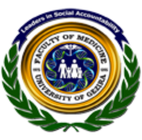 |
The Faculty of Medicine University of Gezira (FMUG) established in 1975, is distinct and unique in its approach to medical education. Its main objective is to graduate high-caliber graduates to serve the rural community of the Gezira area and Sudan at large. The school's mission is promotion of its community through high quality and cost-effective education, health service dedicated to the needs of our society and the health care system, and relevant research that satisfy equity and responsiveness to the changing community needs. The school adopted a community oriented, community-based education (COME/CBE), problem solving and integrated curriculum to achieve its main objectives and mission. FMUG is a pioneer in community-oriented, community-based medical education in the East Mediterranean Region (EMRO) and is a leader in innovative medical education in Sudan. The first student intake started in 1978 and the graduation of the first batch was in 1984. Now the Faculty is going to graduate batch number 38 in June 2022 and has already taken batch number 44. The number of graduates up to date is 6115. Students' intake is 270 per batch and females became dominant (60%). Over years, it has been a destination for students from the Middle East and East Africa. The prescribed undergraduate medical programme is 10 semesters equal to 5 calendar years, composed of 43 courses (221 credit hours). The programme is divided into three phases; introductory, system modules and clerkships. The community-based education activities and courses constitutes 20% of the curriculum. The FMUG is a leading school in social accountability and is famous for its evident impact on health service, health system and research. It has influenced many medical schools inside and outside the country; spreading the culture of innovative medical education. The school led the national alliance of medical schools for social accountability in Sudan (2016). The FMUG has adopted multiple reforms and expansion of its faculty and staff based on periodic curriculum reviews and programme evaluations. The school houses four centers: the medical education development and research center (a WHO collaborating center since 1996), the primary health care center, the center for non-communicable diseases and the pathology center. FMUG has strong partnerships with Ministry of Health and the community. They work in harmony and had achieved a lot through the concept towards unity for health and education for health. The teaching hospitals are accessible for the FMUG. The service provided, mainly by the FMUG staff, serves the whole region, acting as a main referral center in Sudan. The FMUG has strong links with national and international educational institutes and organizations. The school is one of the founders of the network: TUFH. It's also a member in the training for equity network (THEnet). The staff participate in teaching and evaluation of undergraduate and postgraduate students in many faculties of health sciences in the country and the region. The FMUG is a member in Sudan Medical Council, Sudan Medical Specialization Board. The school maintains good linkages with the health sectors faculties at the University of Gezira and other schools through the country. https://en.uofg.edu.sd/ |
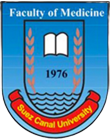 |
FACULTY OF MEDICINE-SUEZ CANAL UNIVERSITY Since 1978, the pioneers Prof. Dr. Zuhair Noman, the founding Dean, and Prof. Esmat Ezzat had established the Faculty of Medicine- Suez Canal University (FOM-SCU) with a unique vision. This distinguishing vision focused on the enhancement and advancement of medical education in Egypt by adopting international innovative educational strategies at that time. Eminent professors led the FOM-SCU successively and all of them worked to achieve this vision and enhance FOM-SCU performance in the academic, scientific research, and service fields. FOM-SCU had applied significant and new educational concepts since the first day of its establishment. It linked education to the health needs of the community, with a particular emphasis on the Suez Canal Region and Sinai community. It accentuated professional ethics, teamwork, and the development of leadership and management skills. Additionally, it invested in scientific research and continuing medical education. FOM-SCU has relied, since its establishment, on several pillars including:
Currently, FOM-SCU pursues to catch up with the fourth-generation faculties & universities and beyond, to have a scientific and research system that qualifies the school to persevere with the updates in medical sciences. Additionally, FOM-SCU works to equip its graduates and faculty with all the required skills and competencies to cope with the labor market. Finally, FOM-SCU looks high for the right position it deserves as a preeminent school not only at the national level but also at the regional and international levels in medical education, scientific research, and community service. https://suez.edu.eg/en/ |
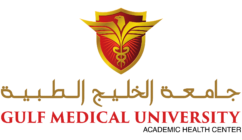 |
Gulf Medical University is one of the UAE’s educational success stories. Since the year 1998, the university have powered its way to a consistently high ranking at national and international levels. GMU encompasses a full spectrum of health education by offering 26 accredited programs run by 6 constituent colleges and 5 institutes. In Time’s Higher Education University Ranking, we placed as the only private specialized university in Health Profession Education in the UAE and ranked second among all universities in the UAE. Our Unique and differentiating factor is that we are one of the few academic institutions with its own health system. This means academia and research is integrated into the healthcare. At Gulf Medical University, quality always comes first. Although all our programs have met the quality standards and accreditation requirement set by the UAE Ministry of Education, we decided to pursue other international accreditation for our programs and for the institute including World Federation for Medical Education Standards (WFME), Institute of Biomedical Science (IBMS), and Accreditation Council for Pharmacy Education (ACPE). Additionally, Gulf Medical University has become one of the latest international institution to receive global accreditation from the Quality Assurance Agency for Higher Education (QAA), the UK’s independent quality body and global leader in quality assurance for higher education. GMU will further position itself as a research university by building a good research infrastructure. Thumbay Research Institute for Precision Medicine (TRIPM) aims to position itself as a cancer research institute in the region with its network of collaborations to be the leader in Precision Medicine and to translate their findings into clinical application in the field of oncology. https://gmu.ac.ae/ |
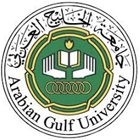 |
The Arabian Gulf University (AGU) and College of Medicine and Medical Sciences (CMMS) were established by a decree from the General Council of Ministers of Education of the Gulf Cooperation Council (GCC) Countries at their 5th Meeting in Kuwait on 30th March 1980. Since its inception, the CMMS follows a problem-based, student centered curriculum in the medical program. This educational strategy, which is currently being adopted by an increasing number of medical colleges throughout the world, aims at equipping the medical graduate with the desired knowledge, the appropriate attitudes and professional skills that are necessary for the effective and successful practice of medicine in the community, and for lifelong learning in the rapidly advancing field of medicine. The medical program focuses on learning by doing, with endless scope of innovation. The College is a pioneer of a community-oriented problem-based curriculum in the Gulf Region and it presents a dynamic curriculum that provides excellent clinical training, integrates the basic sciences with clinical experience, and utilizes modern technology. The College is listed in the World Directory of Medical Schools, under the auspices of FAIMER and WFME, and in the WHO list of universities of the Eastern Mediterranean Region (EMR). Many of the CMMS medical graduates coming from different Arab Gulf countries, after completing their graduate clinical training in leading medical and health institutions in North America, Western Europe and Australasia are now holding senior consultancy positions in their respective countries and thus contributing to the health care enhancement of the region. The College admits students from the GCC member states with seats allocated to non-GCC Arab nationals who are resident in GCC countries. Around two thousand five hundred physicians graduated from CMMS to date. In line with the University’s mission to establish innovative and effective programs with relevance to the Arabian Gulf regional issues and the College mission to recognize and respond effectively to the health needs of the region, in 2001 the College started to offer Graduate programs leading to Diploma, Master and Doctor of Philosophy degrees. Around one hundred eighty students have already graduated from the College’s various Graduate Programs. The CMMS has established specialized centers, such as WHO Collaborating Centre for Health Professionals’ Educational Development, Al Jawhara Centre for Molecular Medicine, Genetics, and Inherited Disorders, the University Medical Centre, the Clinical Research Centre, the Medical Skills and Simulation Centre and the Regenerative Medicine Center, in addition to King Abdulla Medical City. In 2006, the College received the Sheikh Hamdan bin Rashid Al Maktoum Award for the best medical college in the Middle East. The College looks forward to assist students realize their ambitions and aspirations by providing them knowledge in an enabling environment. |
Exhibitioners
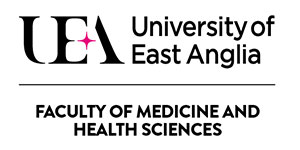 |
 Simon Rose Simon Rose |
 Suzanne Shutt Suzanne Shutt |
 |
 Bob Woollard Bob Woollard |
 |
 Dan Harper Dan Harper |

